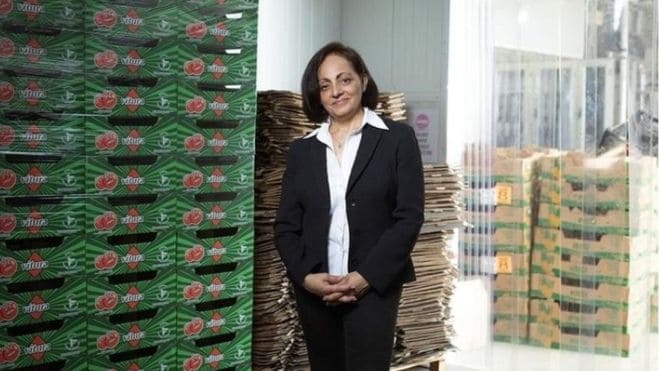Many small firms can identify with Nimisha Raja’s view of Brexit: “We have absolutely no idea what’s going on.”
Ms Raja, founder and boss of Nim’s Fruit Crisps, stockpiled supplies last year in the run-up to the original Brexit date in March.
But she told the BBC she had no plans to do the same ahead of 31 October.
Ms Raja is not alone. New research by the British Chambers of Commerce (BCC) shows 41% of UK firms have done no risk assessment on the impact of Brexit.
The BCC survey canvassed the views of more than 1,500 business leaders.
“Last time we stockpiled, it came to absolutely nothing. We were lucky enough to get a deal with the NHS and we were able to use the products that we had stockpiled,” said Ms Raja, whose factory is based in Kent.
“But this time around, it just feels like we want to do what [people at] Westminster seem to be doing, which is just folding their arms and waiting for the deadline.”
The BCC said: “Business has consistently called on government to avoid a messy and disorderly exit.
“But in light of the political turmoil and relentless uncertainty, clearer and more consistent information is needed to help them prepare.
“With just weeks until a potential no-deal exit, there is still a large proportion of firms that aren’t in a position to prepare for the impact.”
A spokesman for the Department of Business Energy and Industrial Strategy (BEIS) said supporting businesses to “get ready for Brexit on 31 October, and take advantage of the opportunities of leaving the EU” was the department’s top priority.
The BEIS had announced £108m in funding support, he added.
Extension bill
Currently efforts are continuing in Parliament to rule out a no-deal Brexit on 31 October. A bill designed to secure a three-month extension to the process could receive royal assent next week.
All VAT-registered firms in the UK need an Economic Operator Registration and Identification (EORI) number to continue to trade with customers and suppliers in the EU once the UK has left the EU.
Firms without an EORI number will not be allowed to trade with EU member states after Brexit.
Earlier this month, the government said it would start automatically enrolling UK firms in a customs system as it speeds up its preparations for a no-deal Brexit, a move the BCC campaigned for.

But BCC director-general Dr Adam Marshall said businesses needed more information.
“There are many areas where there simply isn’t enough clear and actionable information for businesses to mitigate some of the impacts of an unwanted no-deal exit.”
Ms Raja said she was not at all clear about what preparations were needed to export her firm’s products after the Brexit deadline.
She said: “We are dealing with fresh produce, just-in-time products, and the worrying thing is that if suddenly on 31 October there are border controls, produce that we have coming in will be held up, which will mean production in our factories will stall.”
Ms Raja said that despite everything, she was hopeful about future prospects.
She added: “I’m still optimistic about Made In Britain carrying as much weight as it always has done.
“Whether we’re able to continue to export the way we have been doing and import the way we have been doing, I don’t know.”

